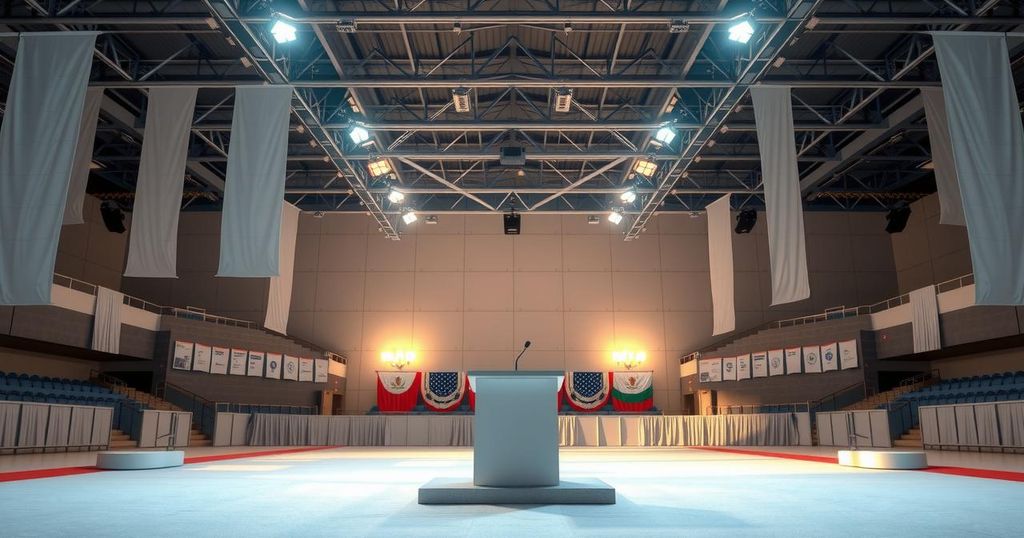Campaigning for Polish Presidential Elections Commences

The Polish presidential election is on May 18, with the campaign underway. Civic Coalition seeks a win to advance legislative proposals without presidential blockage from Andrzej Duda. Polls suggest Rafał Trzaskowski leads, followed closely by Karol Nawrocki. A total of eleven candidates are vying for the position, with a potential runoff on June 1 if no majority is attained in the first round.
The Polish presidential election is scheduled for May 18, with the official campaign having commenced. The ruling Civic Coalition is aiming for victory, as it would allow their legislative proposals to progress without obstruction from the current president, Andrzej Duda, who aligns with the opposition Law and Justice party. Polls indicate that Rafał Trzaskowski, the mayor of Warsaw and Civic Coalition candidate, has the best prospects for success.
Karol Nawrocki, the candidate supported by the Law and Justice party, is closely following Trzaskowski in the polls; he currently heads the Institute of National Remembrance. In the race as well is Slawomir Menzen from the far right Confederation party, known for its nationalistic stance. The most intense competition will likely unfold between the two leading candidates, Trzaskowski and Nawrocki.
The previous election in 2020 saw Trzaskowski narrowly defeated by Duda, with both candidates receiving over ten million votes, making it one of the tightest races in Polish electoral history. A total of eleven candidates will compete in the first round, including notable figures like Szymon Holownia of the Trzecia Droga and Magdalena Biejat of the New Left. If no candidate secures a majority in the first round, a second round will be held on June 1.
In Poland, the president is elected via universal suffrage in a direct and equal manner through secret ballot for a five-year term, with a maximum of two terms allowed. This ensures a democratic process and engagement of the electorate in shaping their leadership.
The Polish presidential election holds significant importance as it determines who will lead the country for the next five years. The election’s outcome impacts not only political dynamics but also the legislative capabilities of the ruling party. Civic Coalition’s success would enable them to advance their legislative agenda without interference, contrasting with the current president’s alignment with the opposition. In light of recent election history, the stakes are high for both major candidates, creating a competitive atmosphere as they vie for the presidency. The presidential election is characterized by its unique electoral rules and the significance of public engagement, underlining the democratic values that guide Poland’s political landscape. The election system demonstrates the Republic’s commitment to facilitating a fair voting process, fostering participation among its citizens.
In summary, the Polish presidential elections set for May 18 highlight a critical contest primarily between Civic Coalition’s Rafał Trzaskowski and Law and Justice’s Karol Nawrocki. With a diverse slate of eleven candidates, intense competition is anticipated, especially between the leading figures. The elections will significantly influence Poland’s legislative future and reflect the electorate’s preferences in shaping their governance.
Original Source: www.euronews.com








